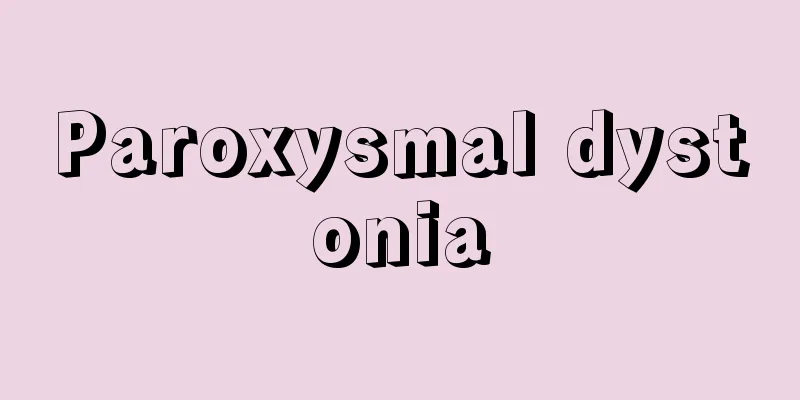Paroxysmal dystonia

|
Paroxysmal dystonia is a relatively common muscle disease and a disease that can have a great impact on people's health and normal life. The incidence of paroxysmal dystonia is relatively high among men. When the disease occurs, certain symptoms will appear. Patients can judge whether they have this disease based on the specific symptoms. Below, we will introduce to you the specific manifestations of paroxysmal muscle weakness. Paroxysmal movement-induced dystonia often occurs in adolescence, mostly in boys, and mainly occurs when there is a sudden change in posture, direction of movement or force load. Sudden voluntary movements in a static state are the most important predisposing factor of this disease, such as suddenly standing up from a sitting position, running after standing for a long time, turning around, raising hands, etc. It can also be induced by non-specific factors such as tension, fright, anxiety, excitement, hyperventilation, etc. There is no loss of consciousness during a seizure, and stopping or slowing movements may terminate the seizure. Paroxysmal movement-induced dystonia can be hereditary or sporadic, with a family history in approximately 60% of cases. The inheritance pattern is mostly autosomal dominant with incomplete penetrance, but there are also reports of recessive inheritance in families. Among familial paroxysmal kinesigenic dystonia, simple paroxysmal kinesigenic dystonia is less common and is often accompanied by IC, BFIS, ICCA, migraine or other neurological diseases. The classic clinical features of paroxysmal movement-induced dystonia include an identifiable cause of the seizure (movement-induced); a short duration of seizures (no more than 1 minute); no loss of consciousness or pain during the seizure; a normal neurological examination and exclusion of other organic diseases; onset is usually between 1 and 20 years of age (not limited to cases with a family history); and response to antiepileptic drugs, especially carbamazepine or phenytoin. About 70% of patients can feel "premonitions" before an attack, such as numbness, coldness, tightness, heaviness, etc. in the affected limbs. During an attack, the patient has no consciousness disorder, and the main manifestations are limb dystonia, dance, athetosis, throwing-like movements, etc.; most of the attacks are unilateral limb attacks, some patients are affected by both sides, and a few have alternating attacks between left and right; 30% of patients may have facial muscles affected during an attack and have speech expression disorders. The attack lasts from a few seconds to tens of seconds, usually not more than 5 minutes. Paroxysmal movement-induced dystonia occurs frequently, with many patients experiencing nearly 20 attacks a day, especially during adolescence, when the number can be as high as 30 to 100 attacks, which gradually decrease after the age of 20. |
<<: Can a hip fracture heal itself?
Recommend
How many days does it take to eat black beans soaked in vinegar?
Vinegar has always played a lot of roles in peopl...
Can I run while preparing for pregnancy?
Many young couples often get pregnant without any...
Eat persimmons on an empty stomach
We like to eat food when we wake up, but some foo...
Can green onions remove scars?
Many people recognize the health benefits of gree...
What are the precautions for anal examination?
Anal examination mainly checks the condition of t...
What are the effects of green lily?
Modern people like to plant some flowers and plan...
What is the method of cervical scraping
We all know that scraping has many benefits to ou...
What are the symptoms of Sheehan's syndrome
The symptoms of Sheehan's syndrome are very m...
Prostate cancer specific drug
As society develops better and better, people'...
6 benefits of ginger foot bath
1. Soak your feet in ginger to treat colds Boil a...
The most effective way to treat prostate cancer
Prostate cancer is the most common malignant tumo...
Viral rash
There are many types of common diseases. When it ...
How to care for lung cancer patients after surgery? 6 correct care methods for lung cancer patients
For many lung cancer patients, after surgical tre...
Normal baby lip color
A person's lips mainly function as a function...
What should I do if I have diarrhea after using enema
Suppository is a common medicine for treating con...









